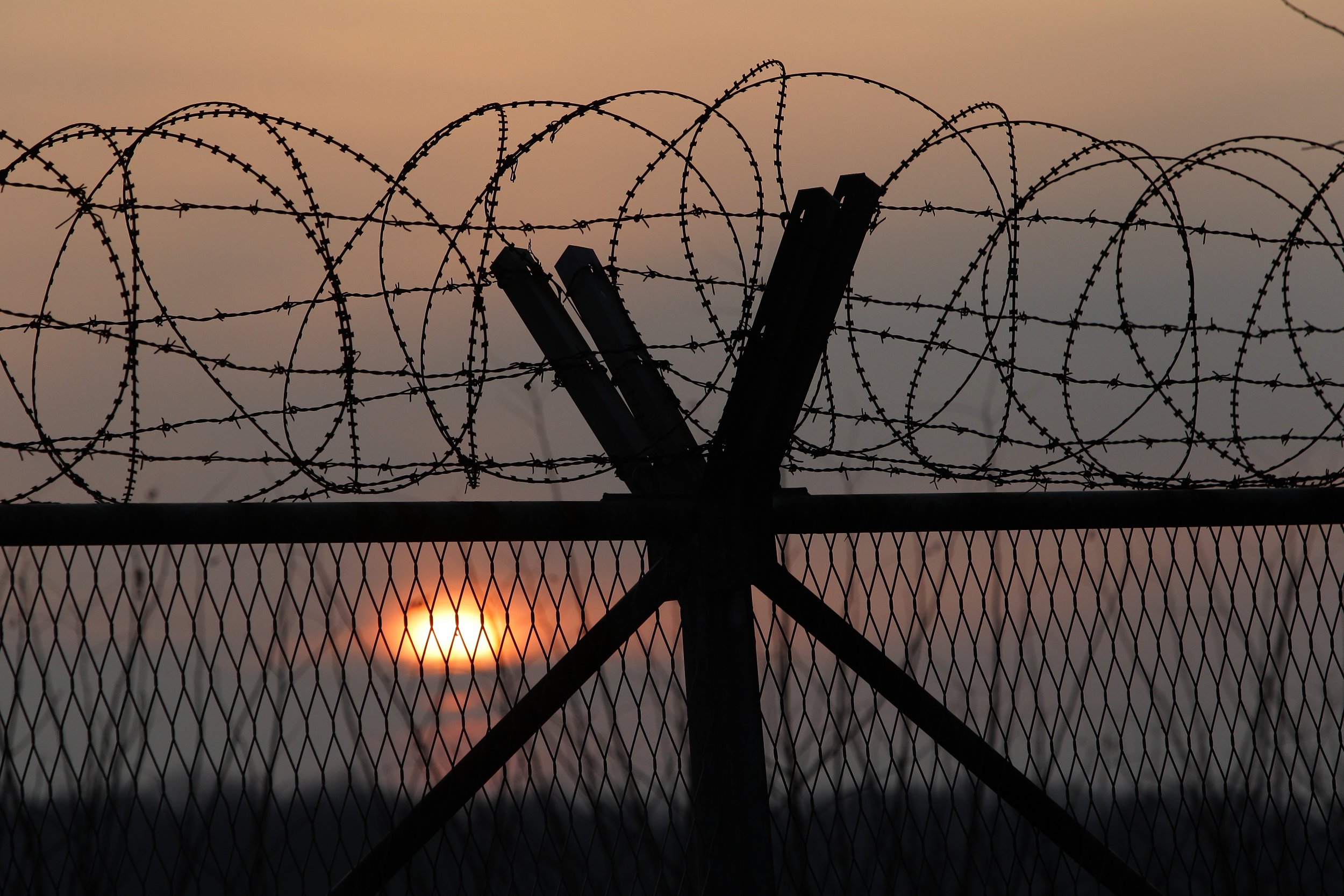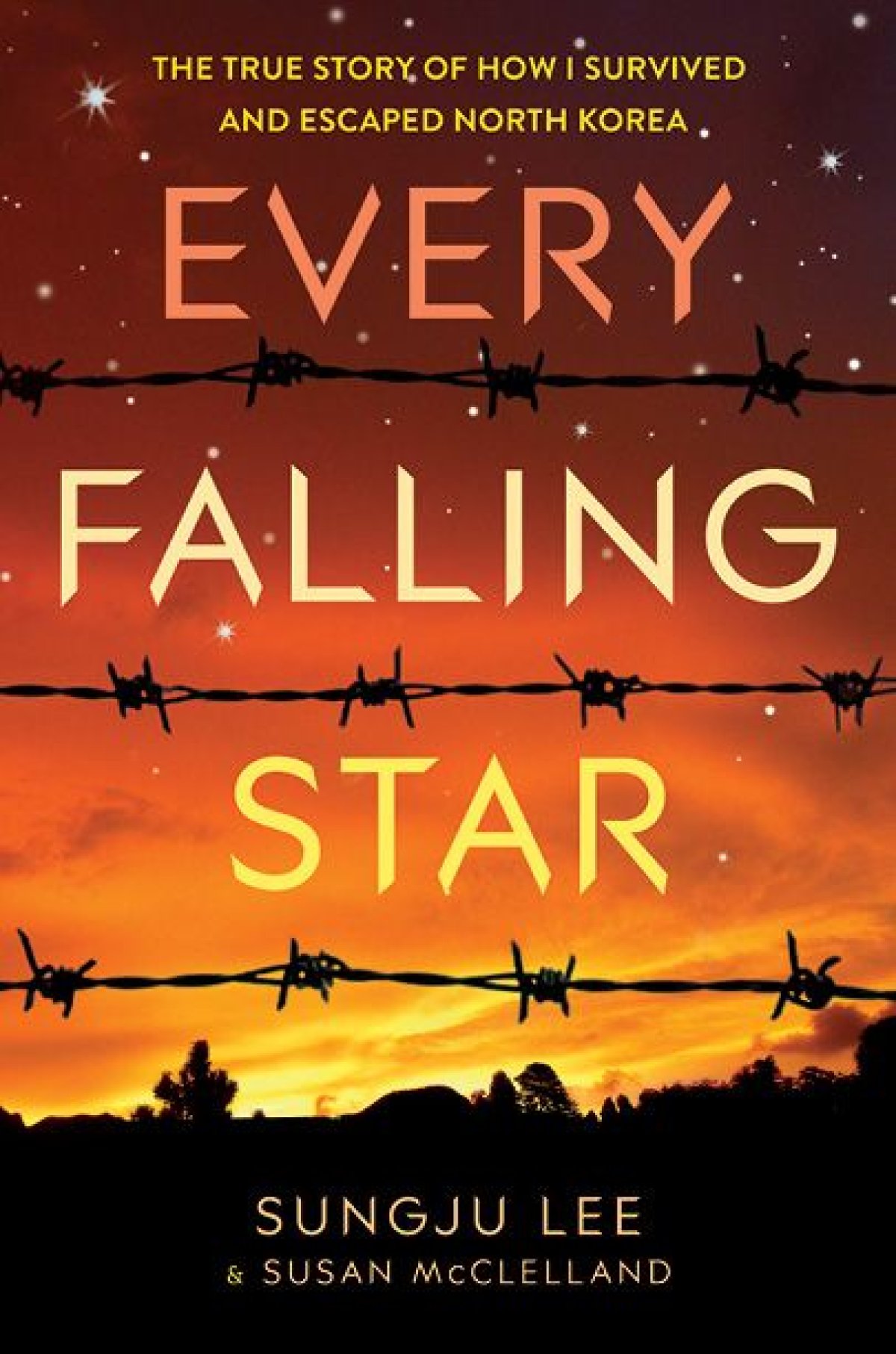
"My father left to find food, said he was going to China, and he hasn't come back yet," he [Young-bum] added.
"My mother went to Aunt's house to get food, too," I said after another long silence. "She told me she would be gone a week and to eat salt and drink water until she got back. That was, I think, about ten days ago." I wasn't keeping track this time. I guess, after my father, I was scared to.
Young-bum mumbled that he was sorry, too. I believed him.
"Are you taking me to the hospital?" I then quipped. "Is the hospital my new kitchen?"
Young-bum laughed. "What would be the point? The hospital doesn't have any medicines anymore, either. You have to buy what you need or steal it, and then take it to the doctor, who will make you pay him to tell you how much to take. It's just a waste of time. You get sick here, you fend for yourself—not like in Pyongyang, where I'm pretty sure they make sure their future generals never get sick. I bet your hospitals in Pyongyang are made out of silver, just like your metro's escalators."
I laughed then, too, not because what he said was funny, but because it was sort of true, except that our escalators weren't made out of silver. "My maternal grandfather is a doctor," I said in a weak voice. "Maybe," I added after a short pause, "you can help me find a way back to Pyongyang to find him."
Young-bum stopped suddenly and turned to face me. "You're joking, right?" he asked, studying my eyes.
I shrugged. "Yeah, maybe, kind of. No."
"Chulho and I believed you were just acting dumb when we told you about things going on in Joseon. But really… you don't know! Your family was kicked out of Pyongyang, fancy-pants," he said, "because Pyongyang people don't come here to live unless the government has told them to get out. And when Pyongyang fancy-pants people are asked to leave, they're stripped of everything.
"Everyone knew about your family the moment you arrived in that train station, all polished like those shiny metal escalators in the metro in the capital. Everyone talked behind your father's back about how a great star of the regime must have done something really bad to have fallen into a garbage heap like this."
I felt the knot in my throat grow tight. My father hadn't wanted me to know these things. I felt I was betraying him just by listening. But Young-bum was right. I had known everything he said all along, from the moment the light flickered and then went out and I saw the dead bird of prey on my way home from the tae kwon do sojo.
"You can't go back to Pyongyang," Young-bum continued, his voice light and soft as if he genuinely wanted to comfort me. "And even if you found a way, your grandfather isn't there anymore. When someone does something against the government, the entire family is usually penalized. Your doctor grandfather has been kicked out, too. Or if he hasn't been kicked out, he's been stripped of all his things and likely left on his own to survive. You'll never find him." […]

I lowered my head, feeling all hope drain, like on a hot steamy day being given a glass of water with holes in it. I swallowed hard so as not to cry.
"Why do you think my mother didn't take me with her?" I asked timidly. Another question I didn't really want the answer to, but I felt I needed to know.
"Because it's too dangerous. She'd have to hitch rides with farmers. She was afraid, as she should be, that you might be caught by the Shangmoo."
"Shangmoo?"
"You've never heard of the 9.27 Shangmoo?" he asked, staring at me wide-eyed. I grunted no.
"On September 27, the government formed the Shangmoo, a band of police to collect people who are not at home or at school and take them to shelters. Every city has a force of these 9.27 Shangmoo, except maybe Pyongyang, because you're like the golden perfect city in the sky, with golden perfect people who all have homes and who never do anything wrong.
"But everywhere else, there are so many kids not at school, adults hunting for food… the Shangmoo's job is to clean the streets of these people. The Shangmoo send the people they find to so-called shelters—the adults to one place, the kids to another. But these are not nice places. They're guhoso, jails. On the streets, we call the Shangmoo the cleaners, because that's what they do. They rid Joseon of its dirty people."
"Where are you taking me?" I demanded, afraid he was taking me to the prison. Maybe he was one of these so-called cleaners. "Here," he said, stopping. We were standing at the edge of the market.
"Look," he then said, speaking slowly and softly, as if he were the one in pain, not me, "[…] I can't..." he began, then stopped.
"You can't what?"
"I can't look after you. This is your kitchen now," Young-bum said, waving an arm around the market. I followed his hand and looked into the tired eyes of the vendors, eyes that no longer reflected light. The men were wrinkled, sunken, and walking around on bowlegs; the children had runny noses, swollen stomachs, and open sores; the women, who like my own eomeoni, I could tell from their fine features and graceful movements, had been beautiful once like swans, until their skin became first pallid from malnutrition and then blue from dirt and their hair began to fall out.
"At least you're alive," Young-bum whispered.
"Am I?" I grunted, then added: "My grandfather, that grandfather who isn't looking for me, told me when I was little that our nightmares always seem real. Maybe...," I whispered, but Young-bum didn't hear. He had already left.
I finished my sentence anyway. "Maybe I died a long time ago, and this is just my nightmare."
Extracted from Every Falling Star: The True Story of How I Survived and Escaped North Korea by Sungju Lee & Susan McClelland, published by Amulet Books (£7.99).
Uncommon Knowledge
Newsweek is committed to challenging conventional wisdom and finding connections in the search for common ground.
Newsweek is committed to challenging conventional wisdom and finding connections in the search for common ground.
About the writer
To read how Newsweek uses AI as a newsroom tool, Click here.








